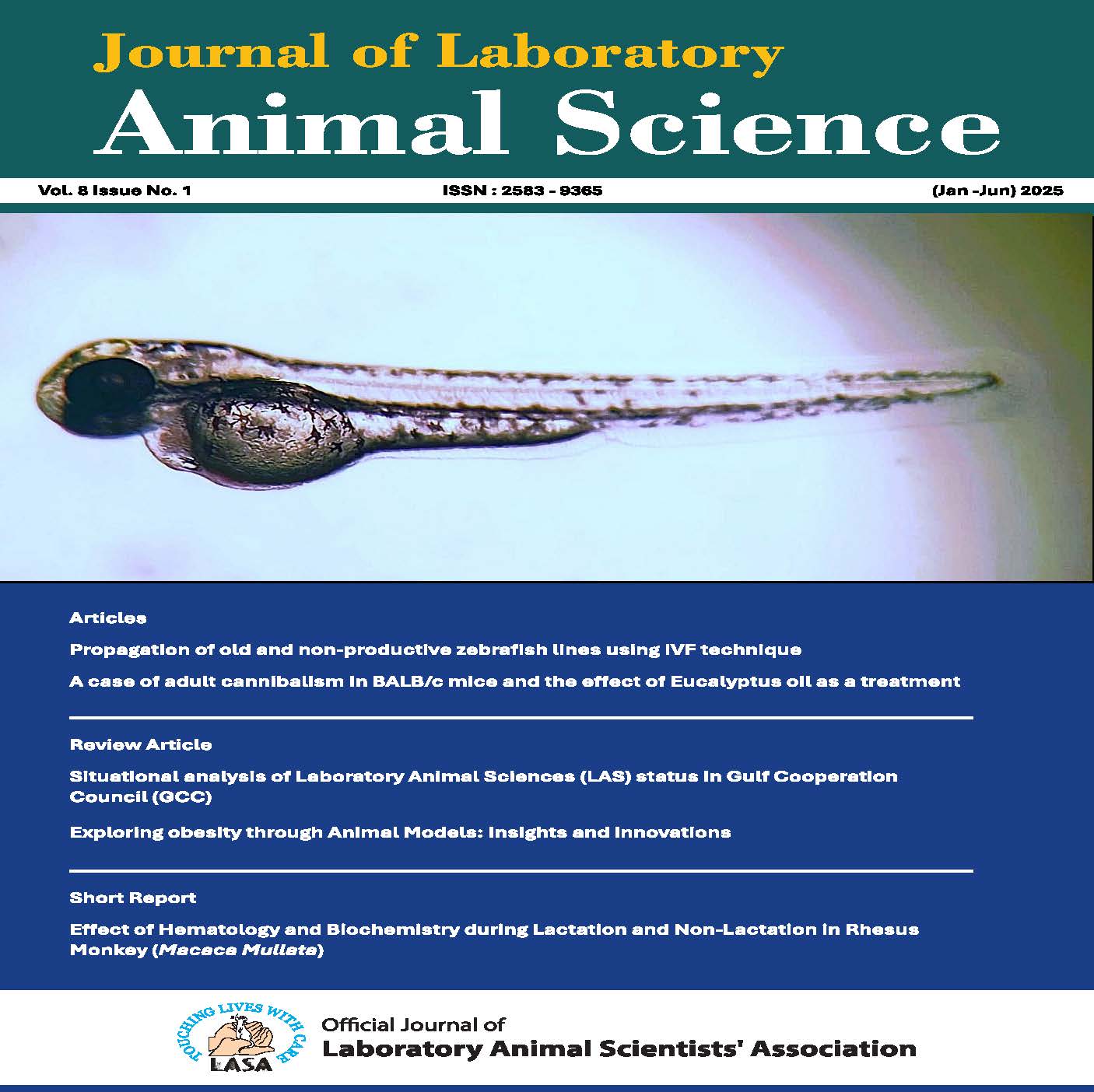Alternatives to use of animal experiments in teaching and research- A review
DOI:
https://doi.org/10.48165/jlas.2021.4.2.6Keywords:
Alternatives, 4 Rs., Laboratory animals, Animal Ethics, DNA chips, microdosing, microfluidics, Alternative organismsAbstract
The “Alternatives” or “Substitutes” is defined as anything from absolute to partial replacement of live animals in biomedical research and testing. Russell and Burch have given their definition of “alternatives” as “the three Rs-Replacement, Reduction and Refinement”. The 4th R i.e. Responsibility was added in 1995. Major areas of medicine and biology where experimental animals are involved include-Developing new treatments for diseases (like multiple sclerosis, cancers, AIDS, Alzheimer disease etc.), preparations of natural products used in medical research, safety testing of chemicals and drugs, study of genetic disorders (like cystic fibrosis, sickle cell anaemia etc.), development of new diagnostic tests for diseases, laboratory mice and stem cells etc. There are some demerits of animal experimental studies like inhumane treatment of laboratory animals and an animals’ response to a drug can be different from that of human beings etc. The common alternatives to experimental animals can be physico-chemical techniques, microbiological systems, tissue/organ culture preparation, computer models, epidemiological surveys and plant analysis (e.g. toxicity assays in plants). Research methods superior to using animals to learn about human disease or predict the safety of new drugs are stem cells, microdosing, DNA chips, microfluidics chips, human tissue, new imaging technologies, and post-marketing drug surveillance and alternative organisms [like lower vertebrates (e.g. Zebra fish), invertebrates (e.g. Drosophila melanogaster)]. Animal ethics is an issue as important as the human welfare. More efforts need to be undertaken for effective implementation of 4 Rs during laboratory use of animals. The increase in knowledge, improvement of health care and creation of useful products that is derived from experimentation on animals, carries the cost of pain and distress that the animals experience. There are provisions for ensuring that animal use is performed in a humane manner so as to minimize pain, distress or discomfort. Various alternatives to animal use have been suggested, which need to be implemented in an effective manner. The development in the field of science and technology should be brought to its advantage so that in the coming years novel alternatives can be developed and the issue of ‘moral values’ in experimentations can be sorted out.
Downloads
References
Arora T, Mehta AK, Joshi V ( 2011). Substitute of Animals in Drug Research: An approach towards fulfilment of 4R’s. Indian J. Pharm.Sci. 73(1):1-6.
Doke SK, Dhawale SC (2015). Alternatives to animal testing: A review. Saudi Pharmaceutical Journal,.23(3):223-229.
Kataria JM, Dhama K, Mahendran M (2005). Cellular and molecular techniques as alternatives to animal use in biological research. National Symposium and XXIX Annual Convention of ISVS.pp.68-74.

